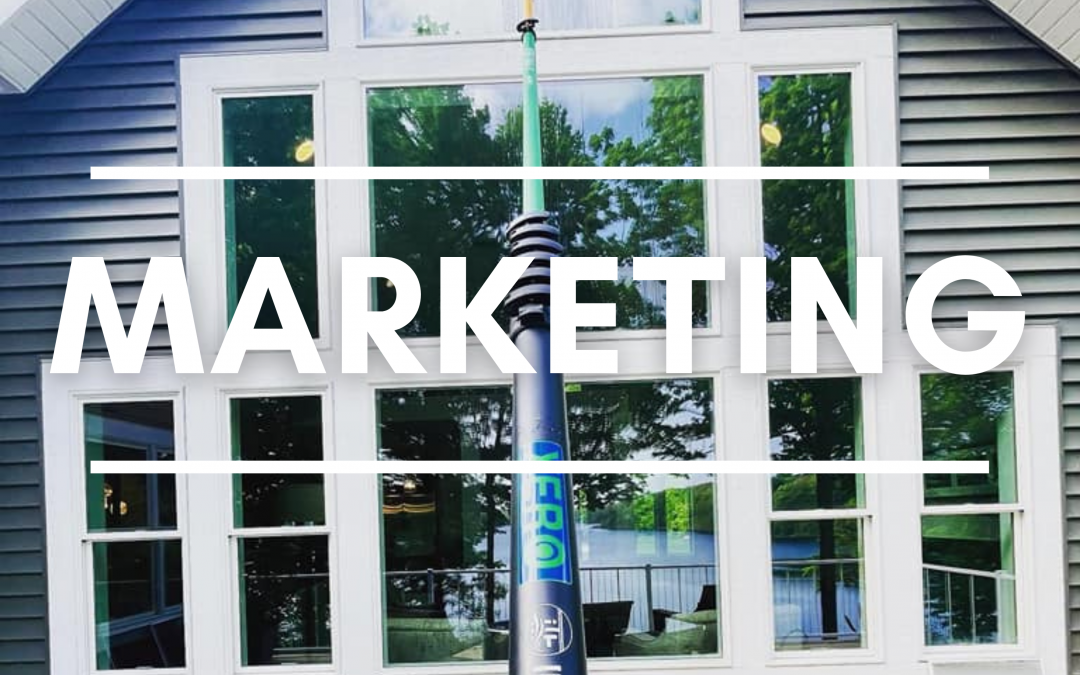Let’s talk SEO. I know over the last several years with so many Guru’s, it really has given the SEO industry a bad name. In some cases, you may have better luck selling Amway than cold calling and landing an SEO client. Fortunately for my agency, we don’t have to cold call.
The last couple of Google updates have been brutal toward many SEO tactics. I can proudly say ours haven’t been affected, but many have, from suspended GMB’s to loss of Google rankings. It’s been ugly, one of the worst I’ve seen over my seven years of running an SEO agency.
Let’s face it, anything you do to manipulate Google Rankings is considered “black hat.” This can be from standard on-page SEO to extreme backlinking. Some of the standard on-page I’m talking about would be using keywords in your content and Meta Data, GEO tagging pictures, intentionally using keywords in your blogging, and FAQ’s. These are common practices that everyone does. It’s easy to reverse engineer, and plenty of training videos exist. Google doesn’t really penalize for it, but if everyone is doing the same thing, there isn’t that much of an advantage, is there?
When manipulating Google with backlinks, you better have a tactic that isn’t easy to trace back, or it will get shut down, such as buying backlinks or, even worse, swapping backlinks. There’s nothing natural about it. I’ll get more into this in a second. Backlinking is one of the best, if not the very best, ranking tactic today. But they aren’t that easy to set up. Some networks take years and a lot of money to build right. When I say build right, I’m referring to leaving no footprints for Google or any random person to find. Plugins are available to hide links from other competitors or Google cop wannabes. But Google sees everything.
Some shortcuts work for a while and then drop off. Or explode, in this case. Such as buying links. This was a tactic that worked and worked very well several years ago. The more links, the better you ranked. These tactics still work today short term, but long term, they always blow up and can damage a website permanently. If you or your SEO provider is purchasing links as their primary backlinking strategy, it’s just a matter of time before it blows up in your face. If you can easily buy the link, who else are the links being sold to? And some of the buyers, what other shady tactics are they performing to catch Google’s eye negatively?
A good example is, let’s say, you take your dog to a doggie daycare, and one of the dogs in the daycare has fleas. Well, it’s just a matter of time before every dog in the building has fleas. It’s Google’s job to isolate any dogs with fleas, and they do it very well. I don’t have to explain this further; I bet you can figure it out from here.
If you’re swapping website links, for example, website A links to website B, B to C, then C to D, and all the way to Z; if anything un-natural ever happens, such as an easy-to-spot footprint, and website Z traces back to A, Google is going to pick up on this, and most likely cancel all links connected. This can also damage or setback a healthy website. Google is much smarter when catching manipulation than most would think. All it takes is one misstep, and your website could be damaged and on a long road to recovery. So it’s best to stay away from backlinking unless you have a tested and proven strategy. What’s the saying, something is better than nothing? Well, in this case, it’s the opposite.
How can you tell if your SEO Company is doing or has done any of these horrible tactics? Tools such as Ahrefs, SEM Rush, and many others will monitor and display backlink profiles. Most SEO companies have access to these tools and would gladly give you a free report of your backlinks. You will also know with a sudden drop in rankings that never return. Don’t freak out if you lose rankings short term. Sometimes Google burps or adjusts to an update, and rankings drop or disappear, then come back several weeks or months later. Trust me, I have had my share of trying to explain why rankings were temporarily lost, but most of the time (95%), they come back. There are rare cases that don’t make sense, and I couldn’t explain. The bottom line is don’t use backlinking tactics with any type of footprint, such as swapped or purchased links.
The grass isn’t always greener. Over my seven years of running Justin Monk SEO, I’ve seen some things that no one can explain. We have had clients we ranked #1 in their main major city that up and canceled for whatever reason, only to drop rankings. Whatever reason usually means someone in their ear is talking them into switching companies for their own agenda. Some have come back, and others are too proud to recognize it. We couldn’t recover the rankings for most who’ve returned, and their website was damaged beyond repair. We keep running ranking reports when a client cancels so we can see the drop in real time.
 The moral of this story is, why try and recreate the wheel? If you find an SEO company and they achieve what you originally set out to achieve, be content with hitting the goal. Don’t let that good buddy, business coach, SEO company, or whoever, talk you into leaving something that is already working. A good SEO is hard to find these days and is constantly evolving.
The moral of this story is, why try and recreate the wheel? If you find an SEO company and they achieve what you originally set out to achieve, be content with hitting the goal. Don’t let that good buddy, business coach, SEO company, or whoever, talk you into leaving something that is already working. A good SEO is hard to find these days and is constantly evolving.
Author – Justin Monk/Justin Monk SEO


Recent Comments